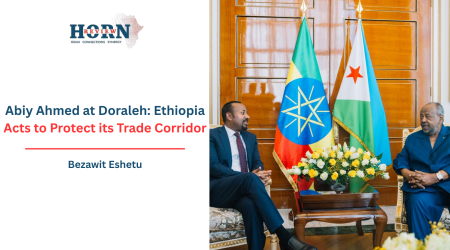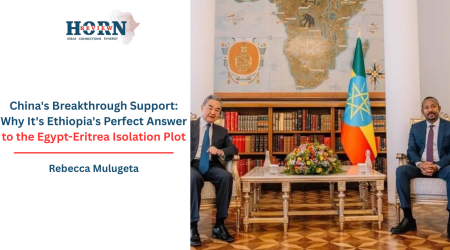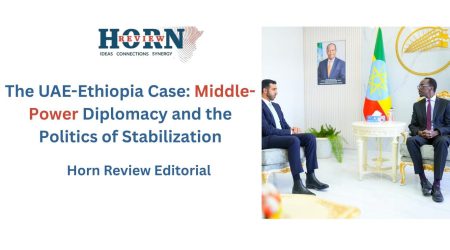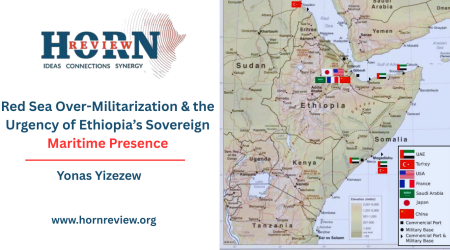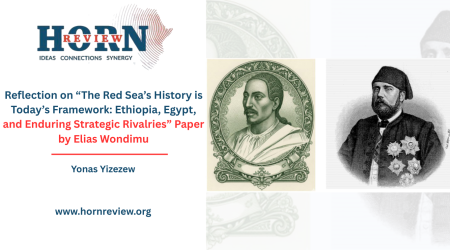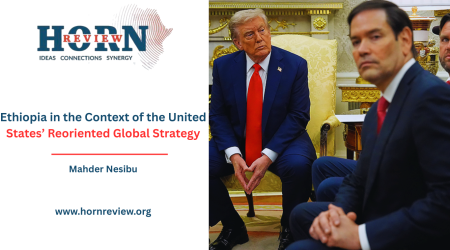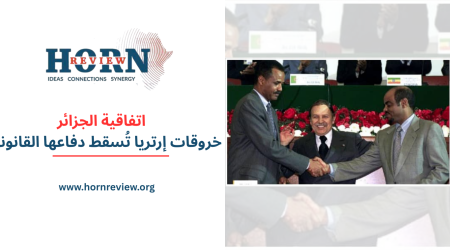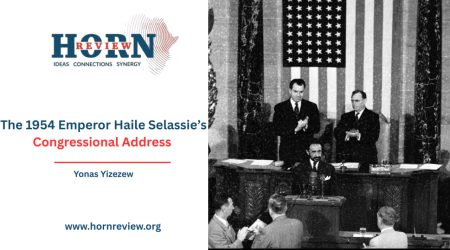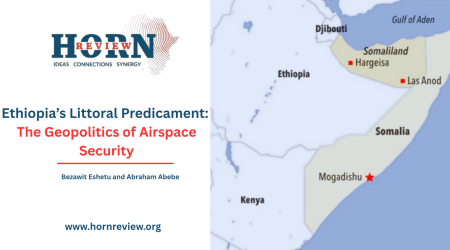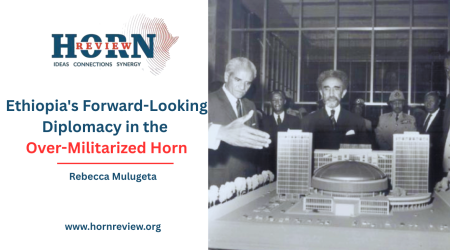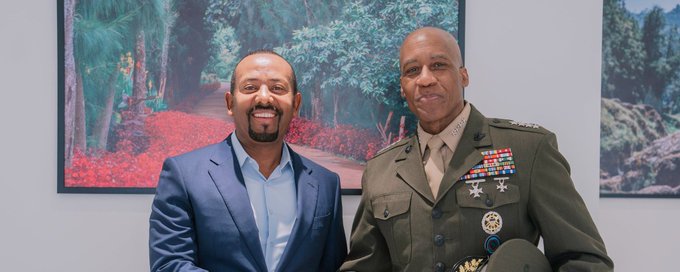
20
Jun
AFRICOM’s Next Frontier: Will Ethiopia’s Strategic Ambitions Align with U.S. Military Objectives?
General Michael Langley’s visits this week to Somaliland and Ethiopia signify more than routine diplomatic engagements. As Commander of U.S. Africa Command (AFRICOM), his presence in Hargeisa and Addis Ababa underscores a renewed American strategic focus on the Horn of Africa a region increasingly defined by mounting tensions in the Red Sea, the resurgence of great-power competition, and the Israel-Iran war that profoundly shapes security dynamics across the broader Middle East and adjacent maritime corridors.
Building on this regional context, Langley’s engagement in Ethiopia adds strategic weight to the trip. His meeting with Prime Minister Abiy Ahmed, while noteworthy, is not unprecedented. Their prior interactions, occurring within the framework of longstanding U.S.–Ethiopian security cooperation, reflect a sustained, albeit measured, security dialogue that has endured despite episodic political complexities. Today’s discussions focused on deepening bilateral counterterrorism cooperation particularly in confronting al-Shabaab and ISIS-affiliated threats in the Horn while also engaging with Ethiopia’s long-term strategic imperatives, including core elements of its evolving national and regional security priorities.
Langley and his delegation also met with Ethiopia’s Chief of General Staff, Field Marshall Birhanu Jula. According to the Marshall, Ethiopia and the United States agreed to strengthen military and defense ties, reaffirming their shared commitment to enhanced cooperation in security and strategic affairs.
This continuity of engagement reinforces the broader framework of the U.S.–Ethiopia security partnership, which remains among the most consequential on the African continent. Built on a foundation of intelligence-sharing, joint training, and coordinated operations especially in Somalia this relationship has historically withstood political fluctuations. It is anchored by formal frameworks such as the Bilateral Security Agreement, which, although currently under review, continues to provide a mechanism for cooperation on intelligence exchange and capacity building. However, the increased visibility of Langley’s visits signals a more overt American engagement consistent with the strategic imperatives outlined in the Trump administration’s Africa strategy, which emphasizes strengthening regional security architectures and countering malign influence from actors such as China, Russia, and now Iran.
In this light, AFRICOM’s evolving role becomes even more critical. Its recently enhanced focus on multilateral partnerships and capacity-building initiatives aims to reinforce host nation security forces, especially in fragile states bordering Ethiopia. Langley’s engagement reflects AFRICOM’s broader mandate to coordinate counterterrorism operations and maritime security efforts, reinforcing the United States’ commitment to maintaining open sea lanes and curbing extremist threats emanating from al-Shabaab and ISIS affiliates in Somalia and beyond.
This broader mandate takes on added urgency given the increasingly complex regional security environment confronting Washington.
Houthi forces, backed by Iran, have escalated attacks on maritime traffic in the Red Sea, threatening one of the world’s most vital shipping lanes. Concurrently, the strategic Strait of Hormuz remains a flashpoint in Iran’s confrontation with U.S. long-standing allies, notably Israel, whose covert operations and cyber engagements contribute to a shadow war that extends across the region. Gulf states, particularly the UAE and Saudi Arabia, are deepening their strategic footprint through investments in ports like Berbera and Djibouti, often aligning with broader geopolitical calculations. Within this multifaceted theater, Ethiopia’s role as a pivotal regional actor becomes ever more salient.
Ethiopia’s maritime ambitions, long a fixture of its foreign policy discourse, experienced a period of dormancy between 1991 and 2018, when the EPRDF government largely accepted the country’s landlocked status as a strategic limitation rather than a challenge to be actively addressed. Post 2018, with Abiy Ahmed assuming power, however, this discourse has reemerged with renewed vigor.
The 2024 Memorandum of Understanding with Somaliland, which grants Ethiopia preferential access to Berbera Port, embodies a strategic gambit aimed at circumventing its landlocked status – an obstacle since Eritrea’s secession in 1993. While this agreement has sparked diplomatic friction, notably with Somalia and its allies, and remains subject to ongoing Turkish-brokered mediation, it underscores Ethiopia’s determination to secure critical logistical lifelines for its burgeoning economy and military.
This determination is further underscored by Ethiopia’s parallel pursuit of naval capability. Alongside its port access ambitions, the country’s nascent naval aspirations signal a growing recognition of maritime security as a critical component of national defense planning. Although hindered by the lack of political will from its coastal neighbors, Ethiopia’s intent to establish a naval presence reflects a strategic recalibration with far-reaching implications for regional security balances. The realization of these ambitions, however, will hinge on shifting regional dynamics and how the international community responds to Ethiopia’s expanding footprint.
Langley’s concurrent visit to Somaliland also carries considerable symbolic weight and aligns with notable shifts in U.S. legislative attitudes. A recent bipartisan Senate resolution advocating formal recognition of Somaliland’s independence while symbolic illustrates growing acknowledgment of the territory’s stability and strategic importance amid Somalia’s protracted instability. The resolution, championed by influential lawmakers on the Senate Foreign Relations Committee, reflects growing bipartisan interest in re-evaluating U.S. policy in the Horn of Africa to better align with on-the-ground realities. Somaliland’s management of the Berbera port, enhanced by Emirati investment, further elevates its profile as a reliable partner. Nevertheless, the U.S. still officially maintains its adherence to the one-Somalia policy, navigating a diplomatic tightrope that Langley’s dual visits exemplify.
Amid these external dynamics, Ethiopia continues to face complex domestic realities. Domestically, Ethiopia confronts a constellation of challenges: economic volatility marked by inflationary pressures, ongoing federal tensions, and the lingering scars of internal conflict. Yet, Addis Ababa continues to project a vision of both economic and diplomatic resurgence, leveraging quiet but deliberate outreach to key international stakeholders as it continues to build on its hard power on the side. The Ethiopian ambassador’s recent cordial welcome by White House in Washington, meetings with President Donald Trump and Secretary of State Marco Rubio, reflect a concerted effort by both the U.S. and Ethiopia to rebuild bilateral relations strained during Trump’s first term over the GERD, and the Biden administration’s stance on the Tigray conflict, and to secure a more favorable strategic environment.
The durability of this diplomatic thaw remains uncertain. However, the confluence of intensifying regional competition for maritime influence and emergent security threats in the Red Sea basin imparts urgency to the recalibration of U.S.–Ethiopia relations. Both parties appear poised to explore pragmatic avenues for cooperation that balance Ethiopia’s national interests with broader regional stability goals.
Ethiopia’s approach to this engagement is deliberate and calibrated. Far from unconditional alignment, Addis Ababa seeks to expand its diplomatic latitude, assert its maritime ambitions, and affirm its security role in a fractious neighborhood. The trajectory of these efforts will inevitably be shaped by a volatile geopolitical environment, necessitating strategic agility and resilience.
General Langley’s visits, therefore, constitute a strategic waypoint rather than a watershed moment. They reaffirm Ethiopia’s status as a pivotal actor in a region increasingly contested by multiple state and non-state actors. How Ethiopia navigates the competing demands of its national interests and external expectations will be critical in determining whether this juncture heralds a substantive reconfiguration of regional order or remains a transient episode in a complex and evolving partnership.
By Blen Mamo,Executive Director,Horn Review

